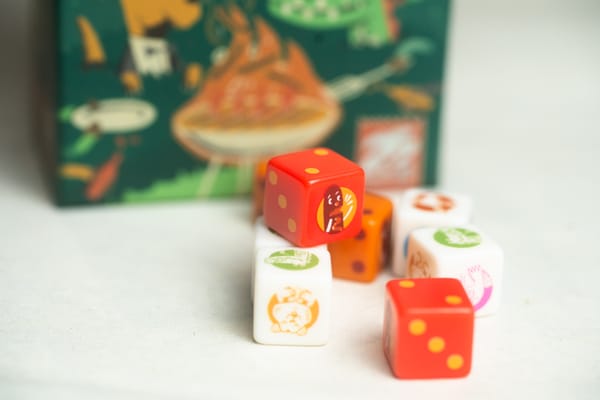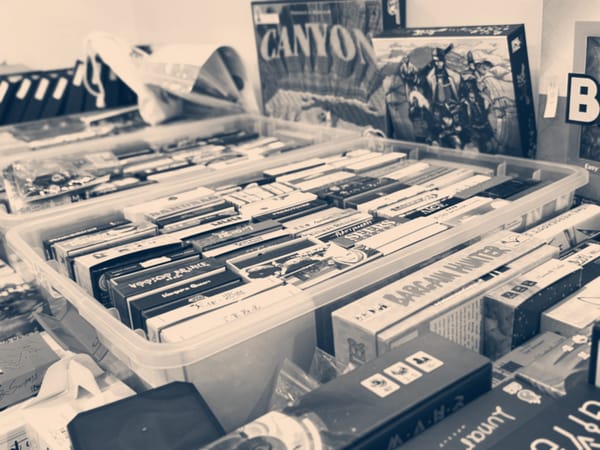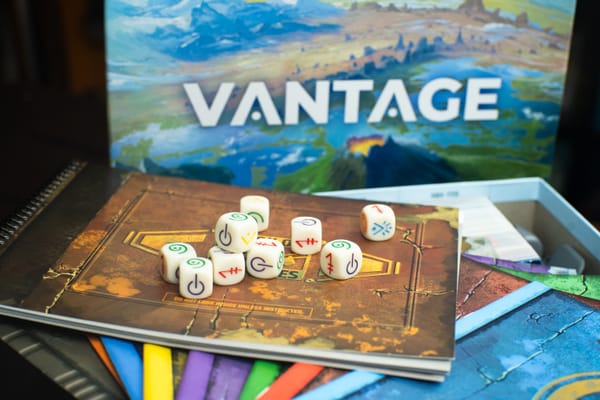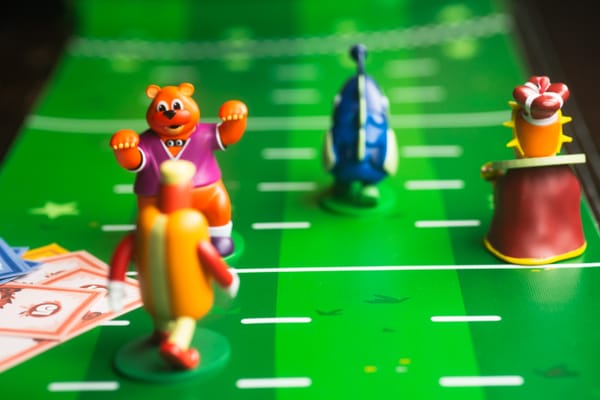Replace Scrabble with these seven great word-building games
There's nothing wrong with Scrabble, but there's joy in expanding your view of games.
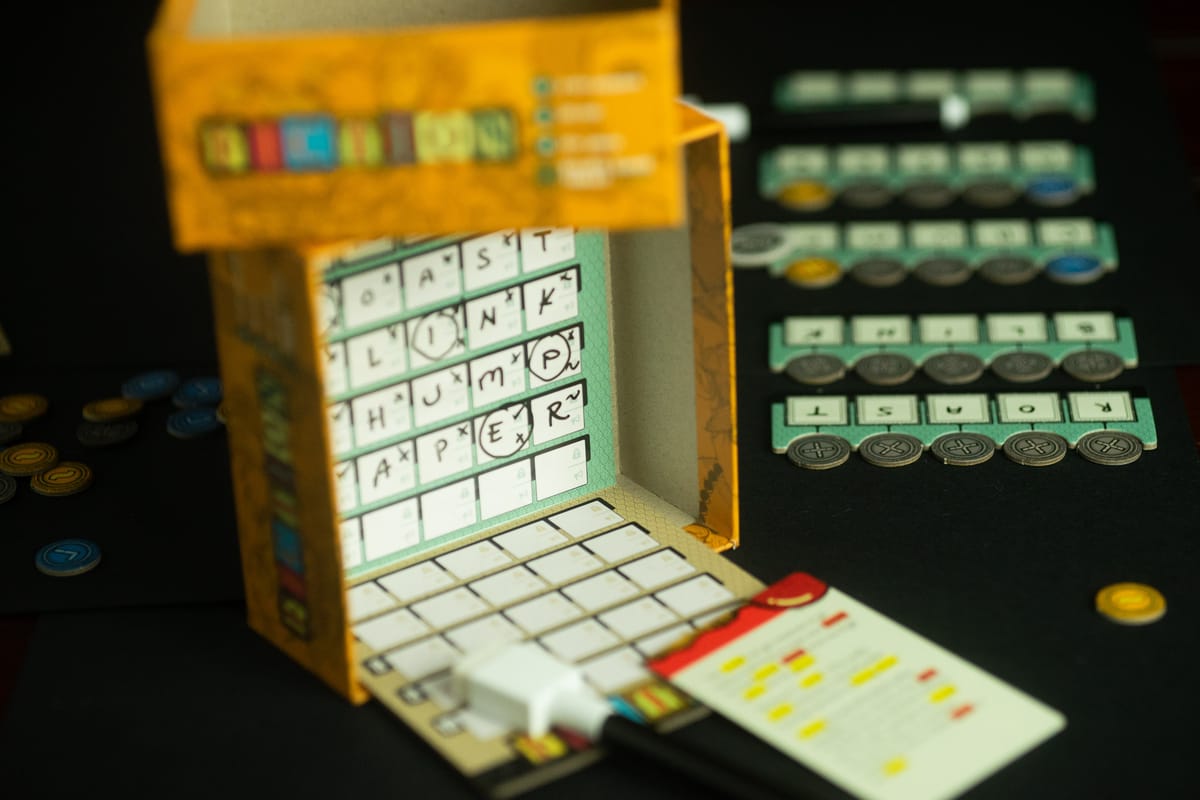
One of the enduring 20th century games, Scrabble is a part of the social fabric of games for many. It’s a classic game with surprisingly deep gameplay that reveals itself the more you play. It’s a truly great game, though good luck beating your own mother at this classic.
That classic status, though, means that sometimes, we’re just ready for a different game. Sometimes we need a word-spelling game that doesn’t take three hours to complete while everyone stares at their tiles tensely. Sometimes, we just want to spell words with cards rather than with tiles. And sometimes, we don’t even want to spell words, we just want to use them in the game.
Whatever your reason for abandoning a dense, jumbled grid of letters, here are some games that can help replace Scrabble.
Thanks for reading Don't Eat the Meeples! Subscribe for free to receive new posts in your inbox every Wednesday morning.
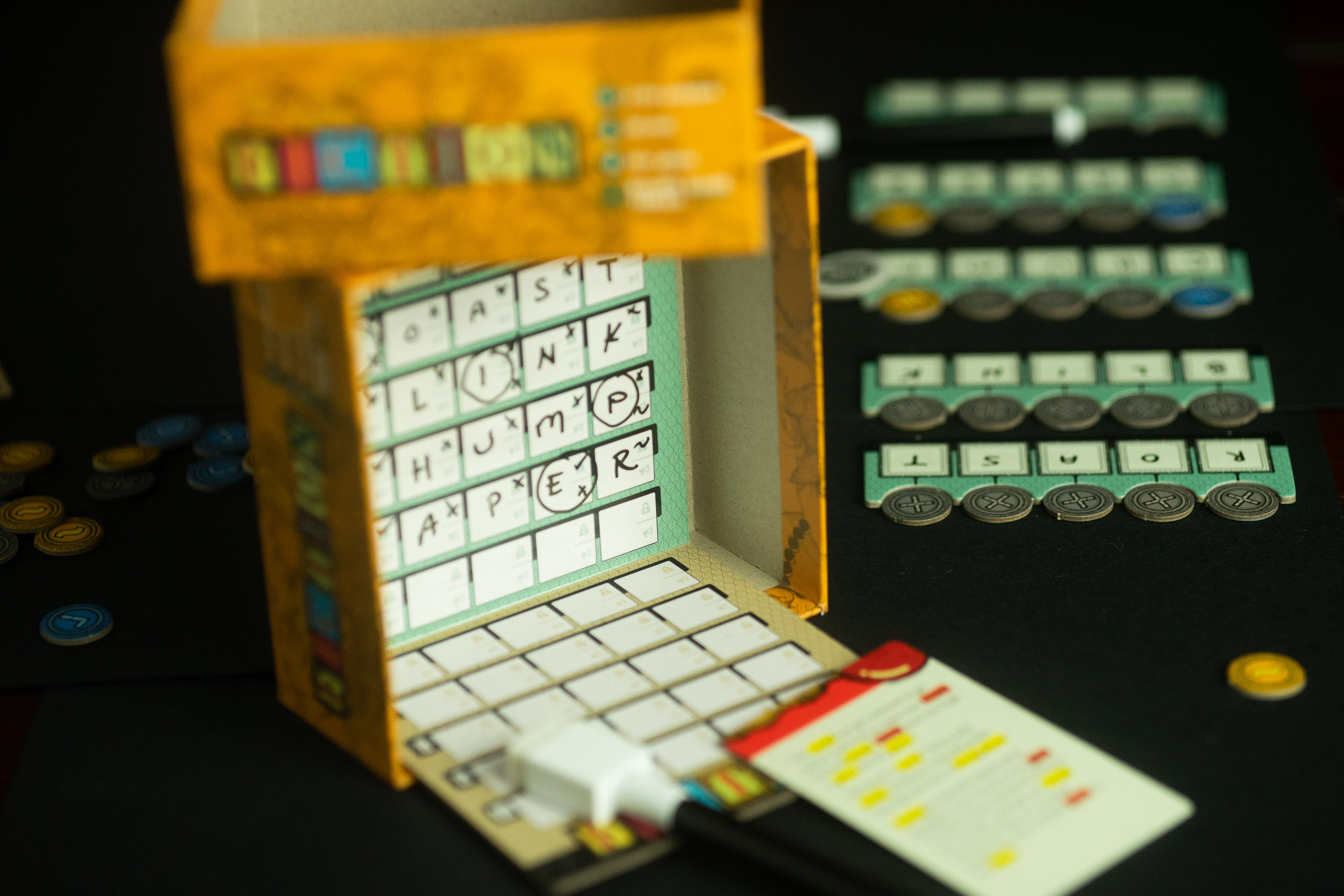
Fiction
Remember Wordle? Of course you do. Wordle dominated everyone’s social feeds for the better part of a year, with folks eager to flaunt their streak, solve puzzles quickly, and generally just have a great time working on a puzzle that everyone you knew worked on, too.
Fiction, designed by Peter C. Hayward, isn’t quite Wordle, though it’s importantly close. This is basically Wordle, but the game’s word-giver can lie to you. Fiction. They only get to lie once per round, though you never quite know exactly about which they’ve lied. This is a great spin on a nice little game, and I think it works really well with gamers and non-gamers alike.
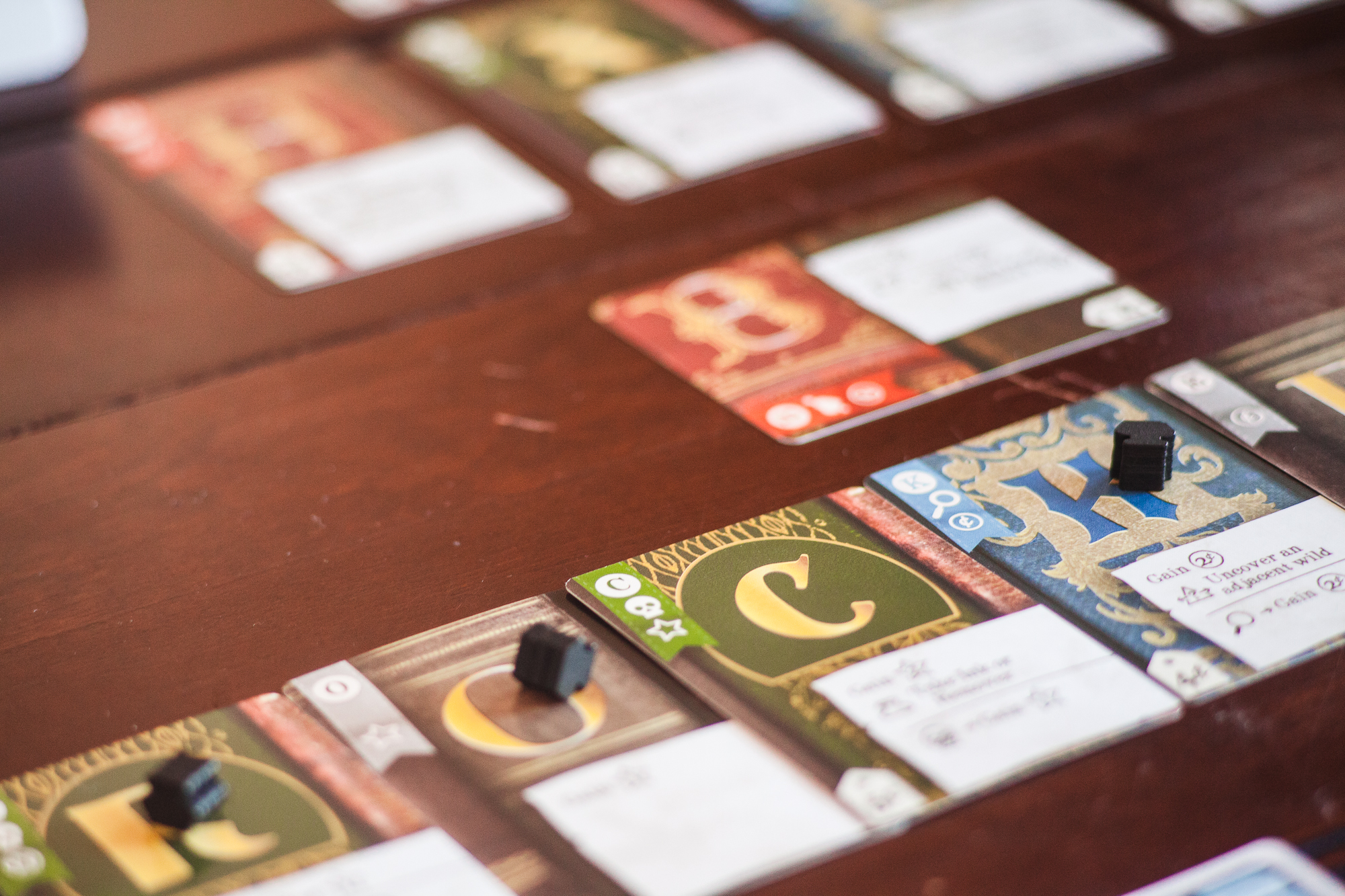
Paperback — or perhaps Hardback
There are woefully few word-building card games, which I suppose makes sense, given the way card games have been classically framed. Both Paperback and Hardback, published by Fowers Games and designed by Tim Fowers and Jeff Beck (with Fowers), respectively, are deck-building word games. Think Dominion or Star Realms, but instead of building empires, you’re building words.
They’re both absolutely fantastic games, and I think you’d do well picking up either. The deck building is a bit different in each, with the split roughly being that Paperback is a bit more strict, and Hardback is a bit more loose.
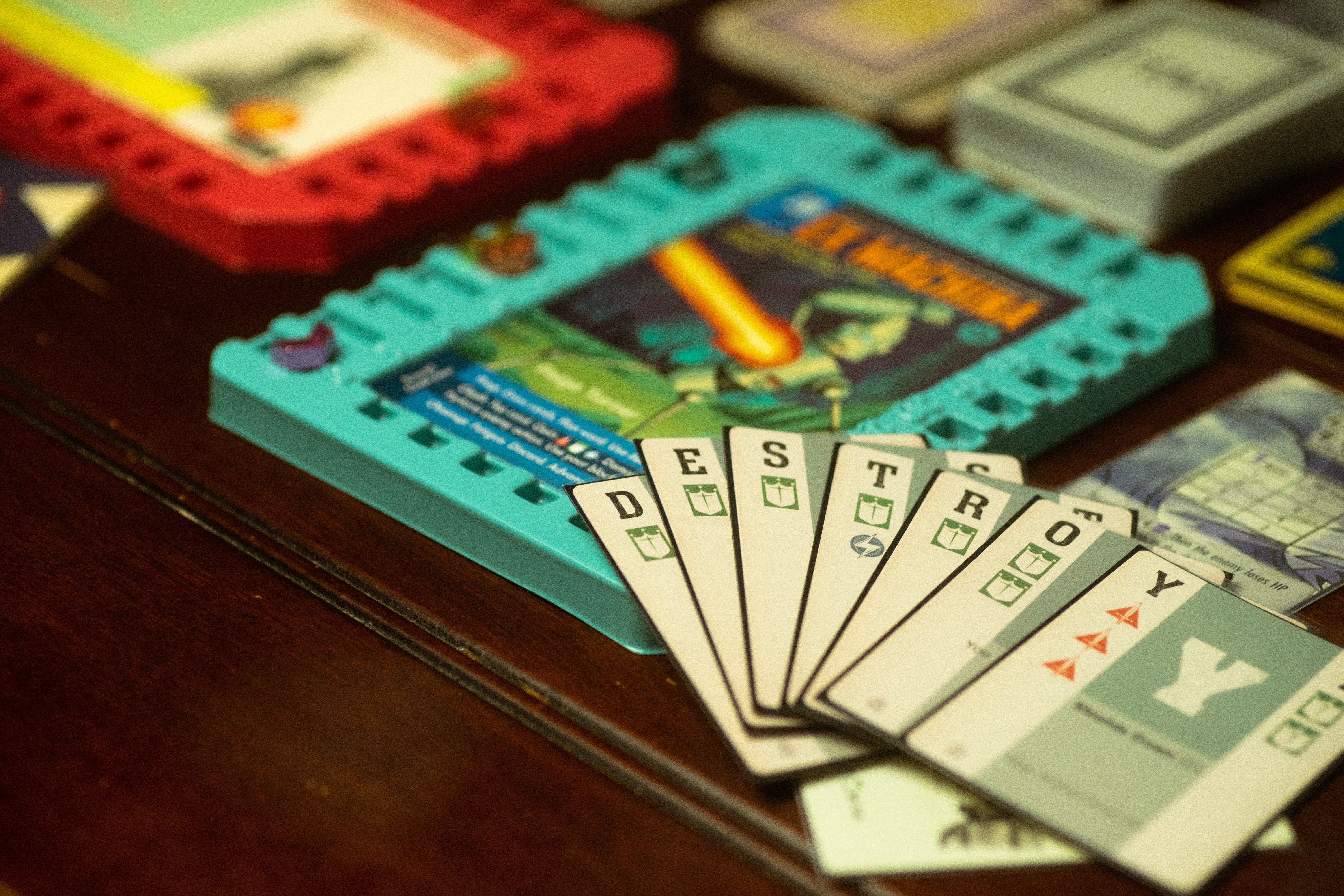
Bananagrams
Imagine a game of Scrabble played with no board, a timer, all the tiles in the bag spilled across the table, and everyone’s frantically forming words in their own personal area. If that sounds chaotic, it’s because it is: Bananagrams is speed personal Scrabble. Everything’s happening in real time. You’re grabbing letters, forming words, and trying to do it faster than anyone else.
Bananagrams, designed by father and daughter duo Abe and Rena Nathanson, is a profoundly weird game, but I love what it gets you to do. It’s certainly not for everyone — an imbalance in ability leaves at least some players completely grasping at straws — but if it sounds appealing, it might just be.
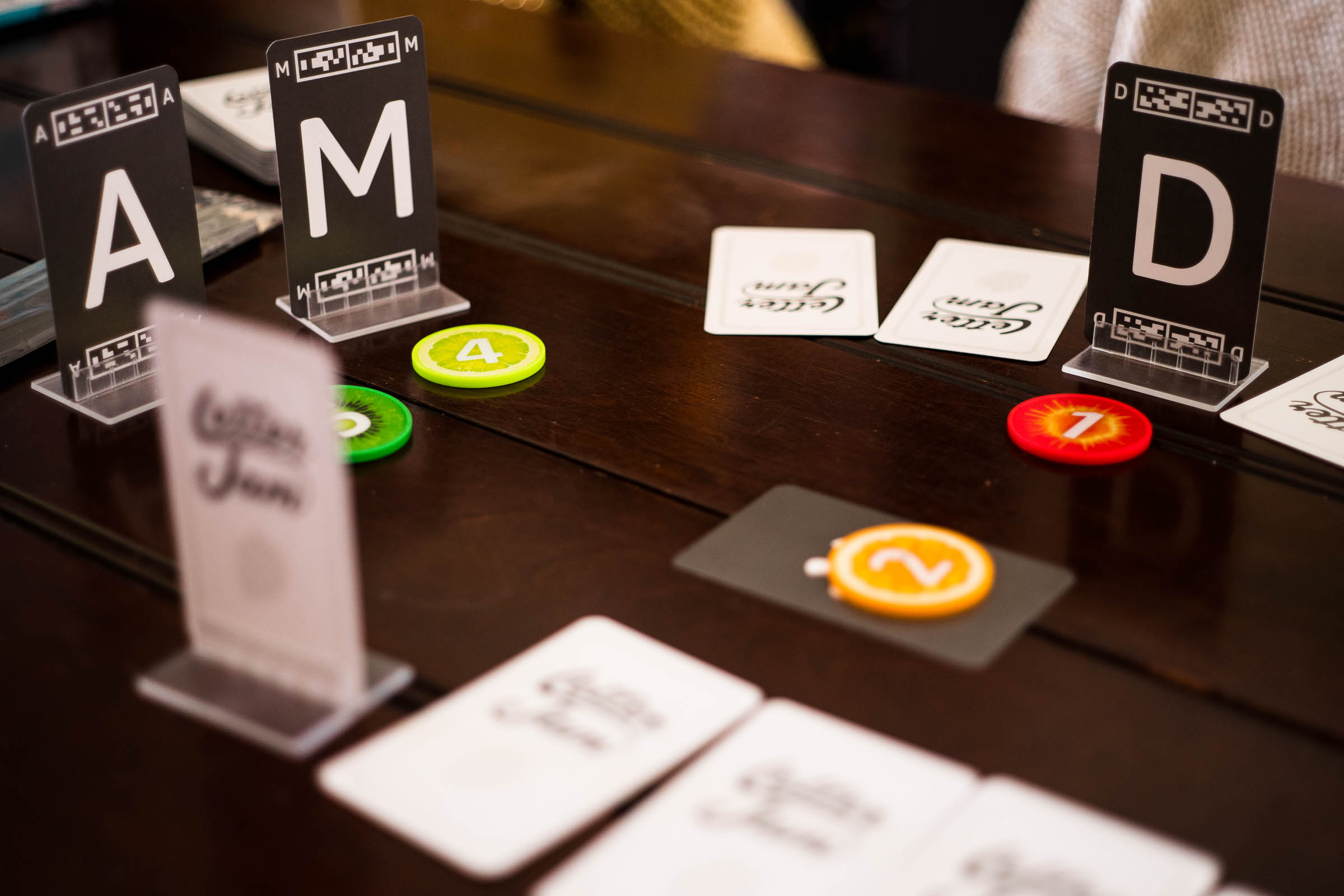
Letter Jam
I’m a real sucker for cooperative games, as you well know by now, and Letter Jam is no exception. Everyone around the table has a hand of cards, but they can’t see their own, just the cards held by other players — and even then, you only see one card at a time. Each turn has one player making a word with the letters they see and with wild cards from the center of the table.
As an example, maybe you see the letters S, T, L and E around the table. You might decide the word is “SLATE,” in which case, you’d place tokens 1, 3, 2, and 4 on those cards, respectively. Each player then will try to figure out what word you’ve spelled, and since they don’t see what letters are in front of them, they’ll have to make some guesses. Perhaps the player with an S will think the word could be “PLATE,” or perhaps the player with a T could think it was “SLAVE.” Once a player is certain about what letter they have in front of them, they can move on to the next letter. At the end of the game, players attempt to spell a single word out of the cards in front of them.
The rulebook underscores the fun of Letter Jam in describing the end of the game: “If more or less everyone has spelled a word, then you have all more or less won.” I love it.
Two more word-building games
- One of my absolute favorite word games (and in danger of going out of print!), Gil Hova’s Wordsy is a game about quickly spelling words with a slate of rotating letters, and trying to do it under the pressure of a ticking clock. You’re not restricted from using letters not available, they just won’t be worth points in your word. It’s a lovely game.
- LetterTricks, designed by Chris Wray — because I can’t get out of here without a quick mention of a trick taker — is a cooperative (or competitive) trick-taking word game in which you’re spelling words with cards played to a trick. When playing cooperatively, you gain points toward a collective goal, and when playing competitively, the winner of the trick takes a letter from the word, aiming to spell the word with the highest point total at the end of the game.
Well, there you have it. Five games that might remind you a bit of Scrabble, in that you’re building words. I know they’re all approach that in a different way, but who needs five copies of roughly the same game and small rule tweaks? (Certainly not me!, I say, backing away from my shelf of trick-taking games.) If you’re wondering about games that involve words in other ways, rest assured, that’s coming to your inbox at some point in the next few months.
As always, thanks for reading Don’t Eat the Meeples. Your continued readership keeps me interested and excited about this newsletter, and I appreciate every time you share it with another person. To that end — I’ve actually just enabled Substack’s referral program. If you refer three friends as free subscribers to Don’t Eat the Meeples, I’ll mail you your very own Don’t Eat the Meeples sticker. Want to see it? I’d be happy to send you a preview. Anyway, the referral button’s at the bottom here.



